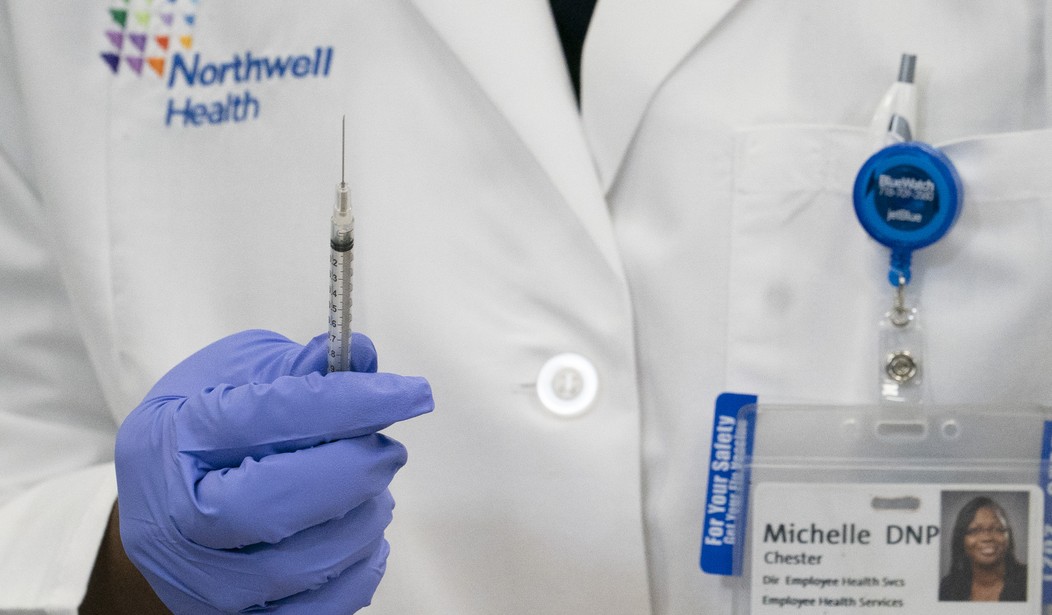A Centers for Disease Control and Prevention (CDC) panel has decided who should be next in line to receive vaccination for the Wuhan coronavirus.
On Sunday, a panel advising the CDC on who should get the coronavirus vaccine ahead of other people made the recommendation that both elderly individuals over the age of 74 and frontline workers should receive priority vaccination.
The New York Times describes the recommendation as a "compromise" between calls for two different groups to receive priority vaccination as the coronavirus continues its scourge across the country.
(Via The New York Times)
The debate about who should receive the vaccine in these early months has grown increasingly urgent as the daily tally of cases has swelled to numbers unimaginable even a month ago. The country has already begun vaccinating health care workers, and on Monday, CVS and Walgreens were to begin a mass vaccination campaign at the nation’s nursing homes and long-term care facilities. This week roughly six million doses of the newly authorized Moderna vaccine are to start arriving at more than 3,700 locations around the country, including many smaller and rural hospitals.
The panel of doctors and public health experts had previously indicated it would recommend a much broader group of Americans defined as essential workers — about 87 million people with jobs designated by a division of the Department of Homeland Security as critical to keeping society functioning — as the next priority population and that elderly people who live independently should come later.
But in hours of discussion on Sunday, the committee members concluded that given the limited initial supply of vaccine and the higher Covid-19 death rate among elderly Americans, it made more sense to allow the oldest among them to go next along with workers at the highest risk of exposure to the virus
Recommended
Critics lambasted the CDC after the agency announced "essential workers" would receive vaccination ahead of the elderly, despite the elderly being at a much higher risk of death and severe illness from COVID-19. Modeling also showed that vaccinating elderly individuals first would save more lives. One of the reasons for initially prioritizing "essential workers" ahead of the elderly was the elderly weren't racially diverse enough.
In considering who should be vaccinated for COVID-19 first, the CDC experts looked at three different metrics: science, implementation, and ethics. The elderly lost points in the ethics category because racial and ethnic minority groups are underrepresented among adults age 65 and over. For the sin of being insufficiently diverse, many of the elderly were slated to die by falling in line behind "essential workers" in vaccine prioritization. An excellent thread providing more details on the methodology used can be found here.
"I feel very strongly we do need to have that balance of saving lives and keeping our infrastructure in place," said Dr. Helen Talbot, a member of the panel and infectious-disease specialist at Vanderbilt University, as reported by the Times.
The two groups represented in the compromise, "essential workers" and the elderly, means that about 51 million people are next in line for vaccination. Federal health officials have estimated that enough vaccine supply should be available to innoculate all 51 million people by the end of February.
Beth wrote earlier about employees at drugmaker Moderna who are working to package up nearly six million doses of the vaccine so it can be distributed in all 50 states. The Food and Drug Administration (FDA) approved an Emergency Use Authorization for the vaccine on Friday, just days after the agency approved Pfizer's vaccine candidate for emergency use. Both drugs arrived quicker than expected thanks to the Trump administration's Operation Warp Speed.























Join the conversation as a VIP Member